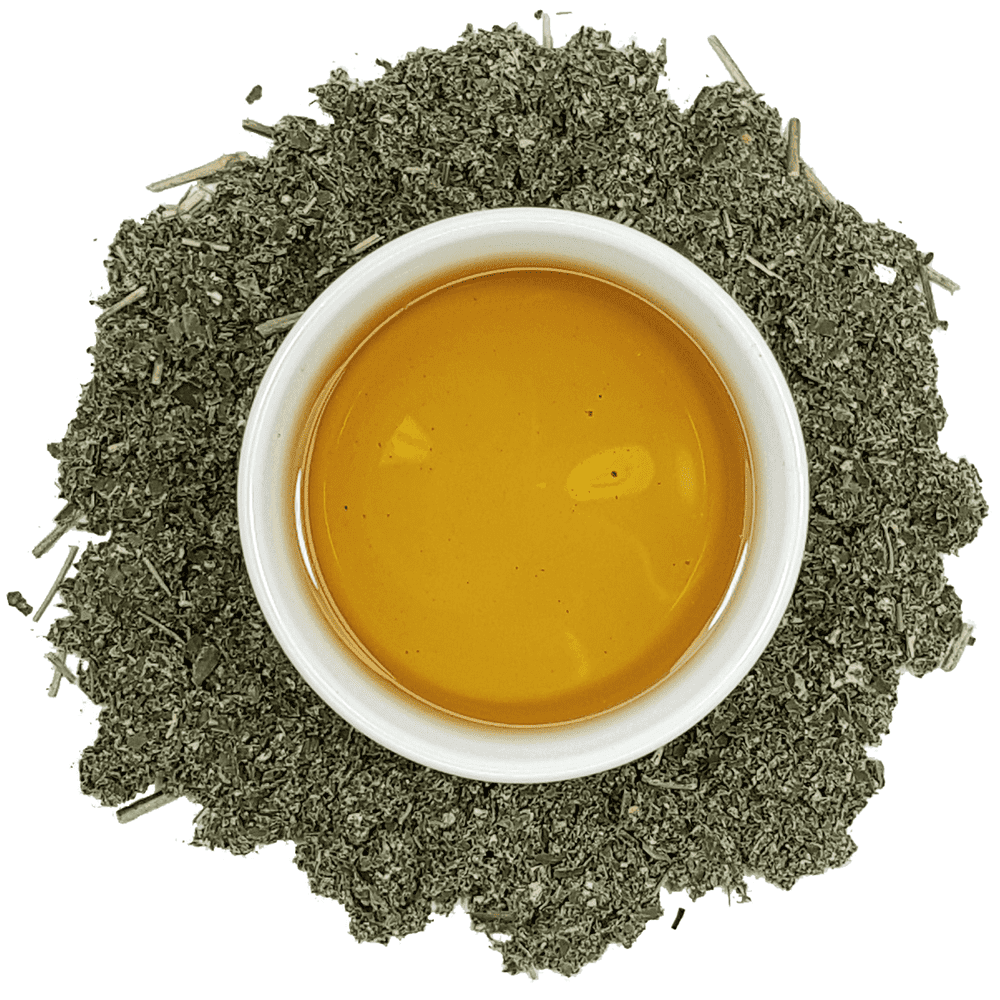When To Start Raspberry Leaf Tea: A Comprehensive Guide For Optimal Health
Raspberry leaf tea has long been celebrated for its numerous health benefits, particularly for women during pregnancy and beyond. If you're considering incorporating this herbal remedy into your routine, it's essential to understand the right timing and proper usage. This article delves into the ideal time to start raspberry leaf tea and provides you with actionable insights to maximize its advantages.
Raspberry leaf tea is not just a trendy herbal beverage; it is a time-tested solution that has been used for centuries to support women's health. Its rich composition of vitamins, minerals, and antioxidants makes it a popular choice for those seeking natural health remedies. Understanding when to start raspberry leaf tea can significantly enhance its effectiveness and ensure safety.
In this article, we will explore the science behind raspberry leaf tea, its benefits, and the optimal timing for consumption. Whether you're pregnant, preparing for childbirth, or simply looking to improve your overall well-being, this guide will provide you with the information you need to make an informed decision.
Read also:Lakeside Collection Christmas A Complete Guide To Festive Decor And Gifts
Table of Contents
- Introduction
- The History and Origins of Raspberry Leaf Tea
- Health Benefits of Raspberry Leaf Tea
- When to Start Raspberry Leaf Tea During Pregnancy
- Best Timing for Drinking Raspberry Leaf Tea
- Recommended Dosage and Consumption Tips
- Precautions and Potential Side Effects
- The Science Behind Raspberry Leaf Tea
- Raspberry Leaf Tea vs. Other Herbal Teas
- Delicious Raspberry Leaf Tea Recipes
- Conclusion
The History and Origins of Raspberry Leaf Tea
Raspberry leaf tea has a rich history that dates back thousands of years. Native to Europe and North America, the raspberry plant has been used in traditional medicine for centuries. The leaves of the raspberry plant contain powerful compounds that promote health and well-being. Historically, midwives and herbalists have recommended raspberry leaf tea to women during pregnancy to prepare their bodies for childbirth.
Today, raspberry leaf tea continues to be a popular herbal remedy, with modern research validating its traditional uses. Its widespread adoption across different cultures highlights its effectiveness and versatility.
How Raspberry Leaf Tea Gained Popularity
- Traditional use in European herbal medicine
- Recognition by modern scientific studies
- Increased awareness through health-conscious communities
Health Benefits of Raspberry Leaf Tea
The health benefits of raspberry leaf tea are extensive and well-documented. Rich in vitamins, minerals, and antioxidants, this herbal tea supports overall health and wellness. Below are some of the most notable benefits:
- Supports reproductive health: Raspberry leaf tea is particularly beneficial for women, aiding in hormonal balance and reproductive health.
- Promotes uterine health: It strengthens the uterine muscles, which can be especially helpful during pregnancy and childbirth.
- Rich in antioxidants: The tea contains high levels of antioxidants, which combat free radicals and reduce inflammation.
- Improves digestion: Raspberry leaf tea aids in digestion and can alleviate symptoms of gastrointestinal discomfort.
These benefits make raspberry leaf tea a valuable addition to any health regimen, especially for women seeking natural solutions for reproductive health.
When to Start Raspberry Leaf Tea During Pregnancy
For pregnant women, the timing of raspberry leaf tea consumption is crucial. While the tea offers numerous benefits, it is important to start at the appropriate stage of pregnancy to maximize its effectiveness and ensure safety.
Most healthcare professionals recommend beginning raspberry leaf tea during the second trimester, around the 12th week of pregnancy. Starting too early may pose risks, as the tea can stimulate uterine contractions. By the second trimester, the body is better prepared to handle these effects, making it a safer time to begin.
Read also:Crumbl Cookie Nutrition A Comprehensive Guide To Indulging Responsibly
Why Timing Matters
Starting raspberry leaf tea too early in pregnancy can lead to unnecessary uterine stimulation, which may increase the risk of complications. Conversely, starting too late may not allow enough time for the tea to provide its full benefits. Balancing timing with individual health needs is key.
Best Timing for Drinking Raspberry Leaf Tea
Beyond pregnancy, understanding the best time to drink raspberry leaf tea can enhance its effectiveness for various health goals. Here are some general guidelines:
- For general health: Drink one to two cups daily, preferably in the morning or afternoon.
- For menstrual support: Begin drinking the tea a few days before your period to alleviate symptoms.
- For digestive health: Consume the tea after meals to aid digestion and reduce bloating.
Adhering to these timing recommendations ensures that you reap the full benefits of raspberry leaf tea while minimizing potential side effects.
Creating a Daily Routine
Incorporating raspberry leaf tea into your daily routine can be as simple as setting aside a few minutes each day to enjoy a warm cup. Pairing it with mindfulness practices, such as meditation or journaling, can further enhance its benefits.
Recommended Dosage and Consumption Tips
While raspberry leaf tea is generally safe, following the recommended dosage is essential to avoid adverse effects. For most adults, consuming one to three cups per day is sufficient to experience its benefits.
Key Consumption Tips
- Use fresh, high-quality raspberry leaves for optimal flavor and potency.
- Steep the tea for 5-10 minutes to extract the maximum nutrients.
- Pair the tea with honey or lemon for added flavor and health benefits.
Consulting with a healthcare provider before starting any new supplement, including herbal teas, is always advisable, especially for pregnant women or individuals with pre-existing health conditions.
Precautions and Potential Side Effects
While raspberry leaf tea is generally considered safe, it is not without potential side effects. Some individuals may experience mild gastrointestinal discomfort, such as nausea or diarrhea. In rare cases, allergic reactions can occur.
For pregnant women, excessive consumption of raspberry leaf tea can lead to premature contractions or other complications. Sticking to the recommended dosage and consulting with a healthcare provider is crucial to ensure safety.
Who Should Avoid Raspberry Leaf Tea?
- Women in the first trimester of pregnancy
- Individuals with a history of gastrointestinal issues
- People with allergies to raspberry or related plants
The Science Behind Raspberry Leaf Tea
Scientific research supports many of the traditional uses of raspberry leaf tea. Studies have shown that the tea contains compounds such as tannins, flavonoids, and fragarine, which contribute to its health benefits. These compounds work synergistically to support uterine health, reduce inflammation, and improve overall well-being.
A 2019 study published in the Journal of Herbal Medicine highlighted the anti-inflammatory and antioxidant properties of raspberry leaf tea, confirming its effectiveness as a natural remedy.
Key Findings from Research
- Raspberry leaf tea reduces inflammation and oxidative stress.
- It strengthens uterine muscles, aiding in childbirth preparation.
- The tea supports hormonal balance in women.
Raspberry Leaf Tea vs. Other Herbal Teas
While raspberry leaf tea is a popular choice for its health benefits, it is worth comparing it to other herbal teas to determine which best suits your needs. Below is a comparison of raspberry leaf tea with chamomile and green tea:
- Raspberry Leaf Tea: Best for reproductive health and uterine support.
- Chamomile Tea: Ideal for relaxation and sleep improvement.
- Green Tea: Excellent for boosting metabolism and energy levels.
Choosing the right herbal tea depends on your specific health goals and preferences.
Delicious Raspberry Leaf Tea Recipes
Enhance your raspberry leaf tea experience with these delicious recipes:
1. Raspberry Leaf Tea with Honey and Lemon
Ingredients:
- 1 teaspoon dried raspberry leaves
- 1 cup hot water
- 1 teaspoon honey
- Juice of half a lemon
Instructions:
- Steep the raspberry leaves in hot water for 5-10 minutes.
- Strain the tea and add honey and lemon juice.
- Stir well and enjoy!
2. Iced Raspberry Leaf Tea
Ingredients:
- 2 teaspoons dried raspberry leaves
- 2 cups hot water
- Ice cubes
- Mint leaves for garnish
Instructions:
- Steep the raspberry leaves in hot water for 10 minutes.
- Strain the tea and let it cool.
- Pour over ice cubes and garnish with mint leaves.
Conclusion
Raspberry leaf tea offers a wealth of health benefits, particularly for women during pregnancy and beyond. Understanding when to start raspberry leaf tea and adhering to proper dosage guidelines ensures its effectiveness and safety. By incorporating this herbal remedy into your daily routine, you can enjoy its numerous advantages and improve your overall well-being.
We encourage you to share your thoughts and experiences with raspberry leaf tea in the comments below. Don't forget to explore our other articles for more insights into natural health remedies and wellness tips. Happy sipping!
Article Recommendations
-1200-p.jpg?v=1722022-123009)

